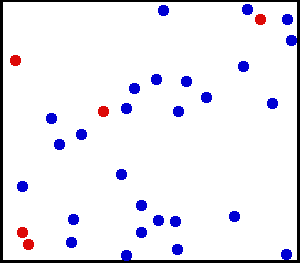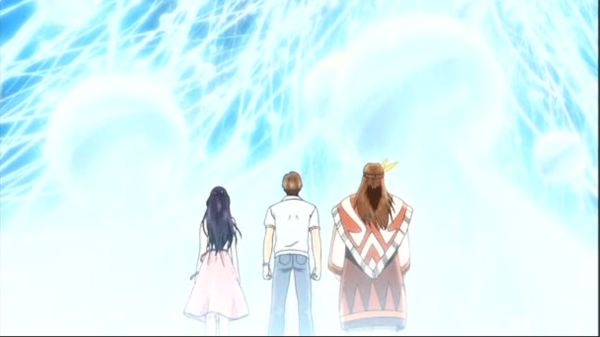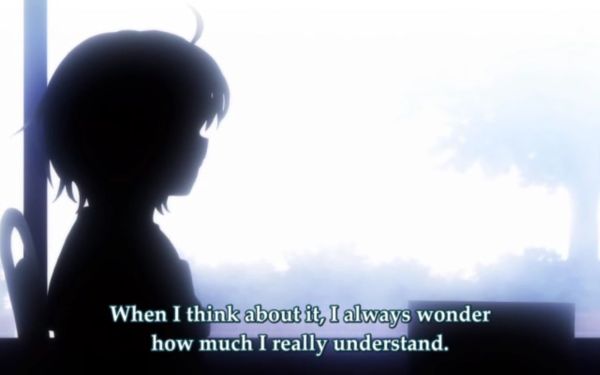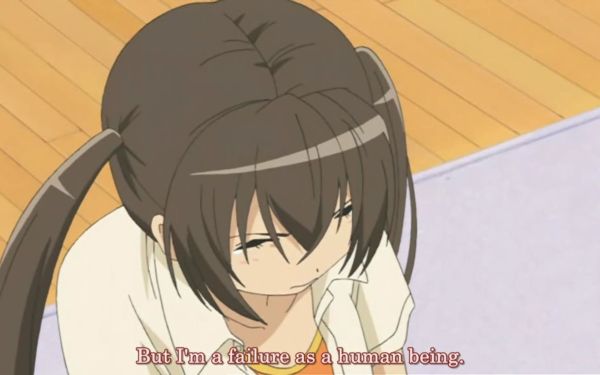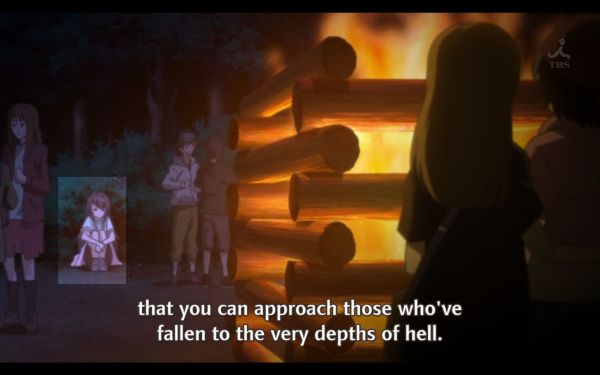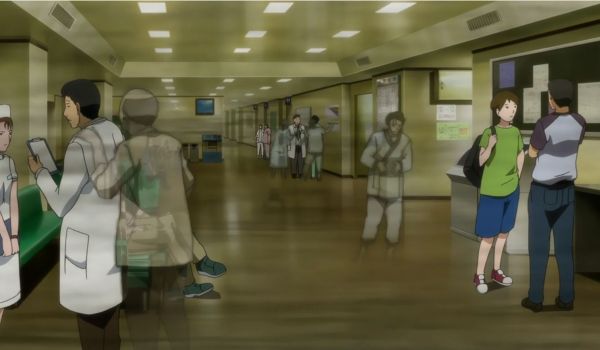
“I want to give myself a prayer for the future, so that I can be sure to find happiness” (from the song Remedy by Maaya Sakamoto, a light-filled song I have praised before.)
Warning: This entry is about religion. Feel free to skip if you are not a transdimensional Raccoon. Excess sanity points recommended for entry.
I wrote in my previous entry about the book Prayer fashions man, by Frithjof Schuon, and how I could not in good conscience recommend it because it scatters so many automatic beliefs that are necessary for most people to function normally. You don’t want to end up with your ego crushed like a fallen egg, where all the kings horses and all the king’s men can’t put back together the carefully created bubble of delusion that was your former “self”.
There are however scattered parts of the book that are harmless and even helpful even to us who are not certified saints and advanced mystics. I would not be surprised if different people came away with different jewels that seem to have fallen from the crystal mountains and boulders that make up most of Schuon’s writing. So I want to dedicate this entry to a few small things I learned.
One was the importance of divine names and ritual prayer, and the connection between them. In the past I considered names simply pointers, to be conveniently ignored once one knew what they pointed to. That may indeed be true for ordinary nouns and even the names of lesser beings, but Schuon is convinced – based on ancient Scripture, the practice of the great world religions, and his own direct intuition of metaphysical Truth – that the Divine Name has immense power on a plane that intersects with the soul. It may be said to be a kind of magic, although of course Schuon does not consider that for a moment. He was a spiritual scientists of high rank, and just as “sufficiently advanced technology is indistinguishable from magic”, we can conversely say that “sufficient understanding of magic is indistinguishable from science.” Or more precisely, one man’s magic is another’s science.
Indeed, I see Schuon as a sort of spiritual equivalent to a professor teaching students of engineering. For the ordinary user, a cursory understanding of electricity is enough, as he just needs to flip the switches and things work as if by magic. Indeed, religions as we know them today may be compared to large houses equipped with various devices powered by an energy as poorly understood by the religious as electricity is poorly understood by the unqualified user. The founders of the world’s great religions, and their disciples again, understood quite well what they did. But over time there were engineers of religion who harnessed the “wild power” that had ingressed into the world through the breach of the world’s walls from above. Like engineers here in Norway put some beautiful waterfalls in pipes to power the country with electricity, it may be said that there were great theologians who harnessed the spiritual power through devices such as ritual prayer, sacrament and necessary dogma. In each religion, there are parts that are meant to fit together. Picking and mixing from different religions is a dangerous thing to do unless you have the necessary religious engineering education.
Even in the dry periods of a religion when there are no great mystics, the “devices” of the religion continue to function as long as left undisturbed, at least sufficiently to save the souls of those who use them faithfully. This is not to gainsay the quote attributed to Krishna, that the priesthood is like those digging wells in a land flooded by water. If there was in such a “dry age” a soul whose eyes was opened to the overwhelming presence of the Divine, they would find it everywhere. But for the most part, people cannot taste the Living Water until it is “pulled up” through the devices built into the particular religion. And it is good that they can get to it that way.
By my light, I have largely considered ritual prayers to be for others, for those who rarely if ever felt the Divine presence, for those who simply flipped the switch and had no interest in knowing how it worked. It can be said in truth that I pitied them, and in this there is an element of looking down on the other. I was privileged, and I knew that this was by grace alone, not something I had earned. But there was still a feeling similar to a genius surrounded by idiots. Even if you know that you inherited your genius by genes before you even had a single brain cell, the fact remains that the people around you are still idiots.
But perhaps not. Given the power and the usefulness of sacraments and common prayers, perhaps I could gain something from them that I do not currently have. And also, perhaps others could gain something from me using them.
There is, according to Schuon and also some Orthodox literature which resonated with me, a certain community formed by those who partake in a particular tradition. As one Orthodox teacher so vividly explained, when the congregation is gathered for mass, there is also present a great number of souls who have lived before and gathered in the same way for the same purpose; and even those yet unborn, who will after our time gather likewise: They are all present together and united. We pray for them, and they pray for us, when we pray the same prayer together.
I had my own revelation of this years ago, which I briefly mentioned on these pages. As for the Lord’s Prayer, there is a line that says: “Give us this day our bread for the day” (or “Give us today our daily bread”). As I mentioned for God that I did not really need anymore bread for this day, God replied: “Us.” Meaning that I pray not simply for myself, but also for those who still don’t have bread for the day. (Of course, this revelation should probably be followed by at least a visit to The Hungersite, if not more.)
It is not accident, says Schuon, that the Lord’s Prayer (OUR Father, who art in Heaven…) is using collective pronouns. Ritual prayer is by its very nature collective, and it for the same reason somewhat mandatory. It fulfills a different function than the free-form individual prayer. It is our obligation to pray with those whose need we may not have, and likewise they pray for us in our need.
***
And then there is the power of the Holy Name. Actually, each religion usually has several Holy Names, any one of which can save. Saint Paul says that there is no other Name in Heaven or on Earth by which we can be saved than Jesus’ name, and this is generally thought to be simply the name “Jesus” or some similar spelling. Yet one may notice that Jesus makes a big deal out of this, at the time of his Last Supper, that he had revealed to them the name of the Father and preserved them in it. Yet there is some disagreement among Christians about the name of the Father. Jehovah’s Witnesses obviously think Jesus meant the name “Jehovah”; to them this is blindingly obvious, since this is the only name God personally gives to one of his trusted servants who asks him earnestly what Name to use. Some other Christians however believe that the Name of the Father, the Son and the Holy Ghost is Jesus. Yes, all of them are Jesus. However, when Jesus is quoted as referring to God, he almost always refers to him simply as Father or The Father.
To summarize, in Christianity we could in good faith claim that Jesus, Jehovah (or Yahweh), God, or The Father, are all Holy Names, Divine Names. Schuon also refers to the Divine Name as a Revealed Name. Any of these names then are used in the revealed Scripture. In addition there may be later revelations after the Scripture was completed, and Schuon argues that the name of Mary is acceptable for Catholics at least, although he cautions that it should not be used exclusively but together with the name of Jesus. Well, obviously not all of us are Catholics, and as such we may not simply be permitted to walk into their tradition and abscond with their holy names, unless we are Raccoons I suppose. But the Gospel was meant to be preached to all nations, so the gospel should be OK.
After considering this earnestly, I have realized that the Lord’s Prayer does indeed start with a Divine name: “Father”. It is probably for this reason that Jesus cautions his disciples to not call anyone on Earth “Father” (something the Catholic Church, among others, seems to have a problem with). Ever since I was a teen, I have also tried to make sure to refer to my earthly father with a qualifier, not as a sign of disrespect, but so as to not take God’s Name in vain.
In light of this, I have decided to follow Schuon’s advice to try to solemnly present a formal prayer three times a day: In the morning, during the height of the day, and before going to rest. For this purpose I have taken the advice of Christ and chosen the Lord’s Prayer, or Pater Noster. While I seek to present this solemnly and soberly, without undue distraction, and with mindfulness, I also take Schuon’s advice to not seek to imbue the prayer with personal soul energy. This is unnecessary and unseemly, because the Holy Name has more than sufficient power. There is no need to engage emotionally and tire oneself as if we were carrying the Name rather than it carrying us. If we believe in the power of the Name to save and transform us, that is sufficient. It does not require our power, it requires our presence. As the voice in my heart explains: “It is not the energy you put into eating that nourishes you, but the food. Eating is still necessary, but it does not feed you; the food does. Grace is like that.”
Until this month, I could not have done this because it would to me be a step back, to a more primitive and magical thinking about religion. That would indeed have been true. But now that I have been explained in great detail how and why it works, it is different. Even if you are an engineering students, you are still allowed to sometimes just flip the switch! ^_^
(PS: After uploading this entry, I found a reference to the Didache, the 1st-2nd century summary of the teachings of the Apostles, recommends citing the Lord’s Prayer three times a day. Small world!)
